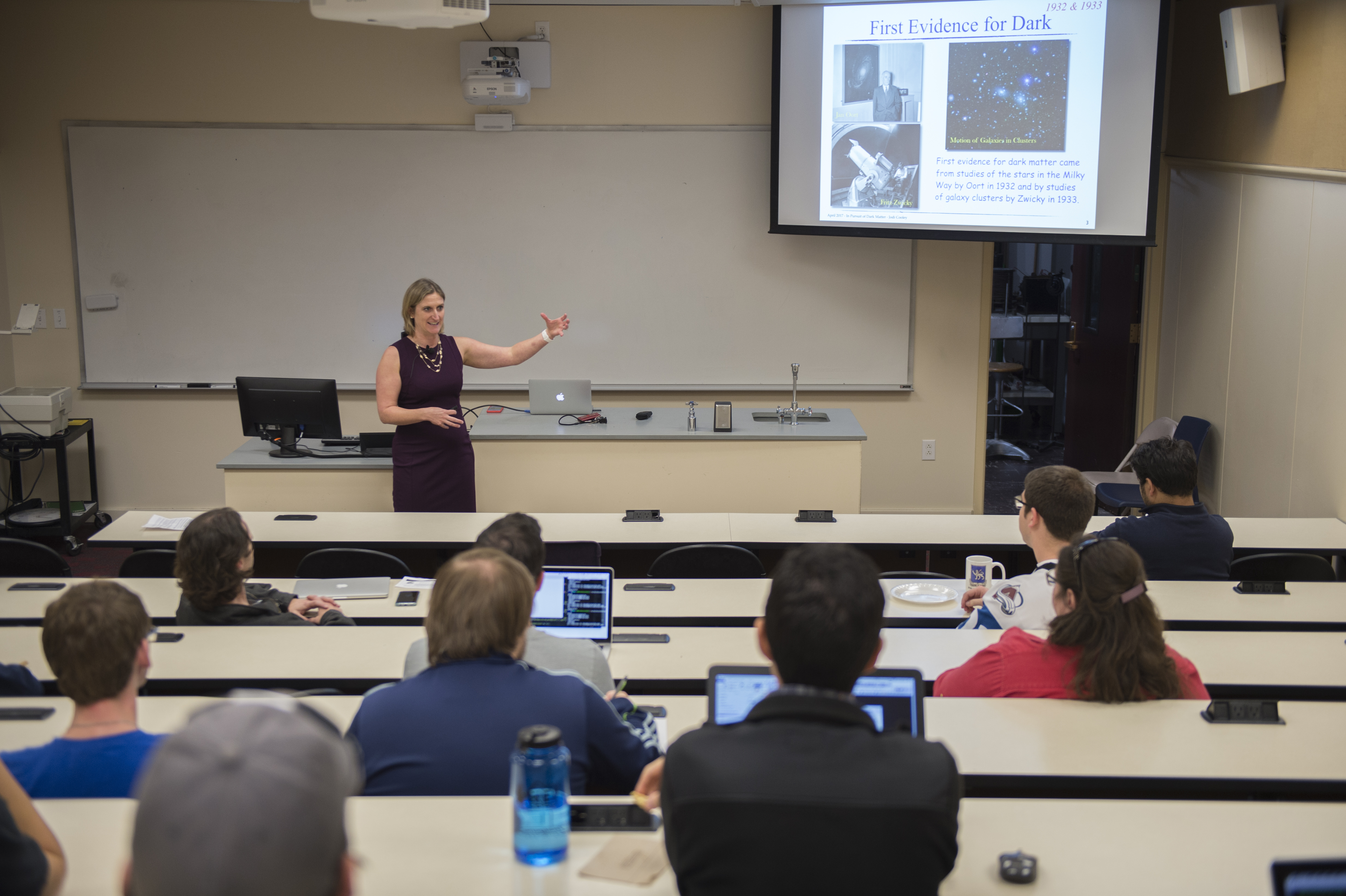Student Learning Outcome
Students will demonstrate an ability to engage in scientific inquiry with respect to the natural world.

Scientific inquiry is a systematic process used to explore the natural world through a hypothesis-driven collection and analysis of evidence that results in informed and reproducible conclusions/judgments. This critical interpretation can be leveraged for effective decision-making in a number of domains.
Students may elect to take two Exploring Science classes and use the second to satisfy the Technological Advances and Society requirement. To do so, students must take both lecture and lab courses (if they are offered separately).
Students will demonstrate an ability to engage in scientific inquiry with respect to the natural world.
ES courses are primarily introductory natural science courses, in the disciplines of Biology, Chemistry, Geology, and Physics. Courses in the departments of Applied Physiology and Sports Management (APSM) as well as Anthropology may also fulfill this Breadth.
Students will:
Courses in this category: